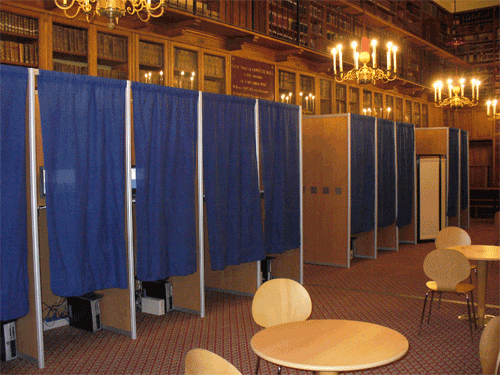Primaries Are Important Too
 In this presidential election year, where Governor Romney became the presumed Republican nominee in May and President Obama is the Democratic incumbent, some states across the country are just now reaching state and congressional primary season. In June, California, Iowa, Montana, New Jersey, New Mexico, South Dakota, Arizona, Maine, Nevada, North Dakota, South Carolina, and Virginia have already held their primaries. Except for South Dakota and North Dakota, these primaries had much lower turnouts than in previous years. The primaries still to occur this month are Colorado, New York, Oklahoma, South Carolina (state and congressional), South Dakota (state and congressional), and Utah, and turnout is not expected to be high. California, Montana, and New Mexico, held their presidential, state, and congressional primary elections on the same day. Many attribute the low turnout to the fact that few of the primaries are going to be closely contested races. Others argue that political primaries, where the voters are not determining candidates to run for the executive office, always draw small crowds. Previous non-presidential elections years, where there have been reasonable turnouts, would prove this theory wrong.
Could it be that people do not believe in the importance of local or congressional elections? This does not seem to be the case. Indeed, more often than not local politicians win by much larger margins in their district or state than the presidential candidate does, even if they of the same party. Thus the local politicians often carry the presidential candidate, helping him or her with his or her campaign. All of this information leads this writer to believe that citizens simply are tired of elections and politics right now.
In this presidential election year, where Governor Romney became the presumed Republican nominee in May and President Obama is the Democratic incumbent, some states across the country are just now reaching state and congressional primary season. In June, California, Iowa, Montana, New Jersey, New Mexico, South Dakota, Arizona, Maine, Nevada, North Dakota, South Carolina, and Virginia have already held their primaries. Except for South Dakota and North Dakota, these primaries had much lower turnouts than in previous years. The primaries still to occur this month are Colorado, New York, Oklahoma, South Carolina (state and congressional), South Dakota (state and congressional), and Utah, and turnout is not expected to be high. California, Montana, and New Mexico, held their presidential, state, and congressional primary elections on the same day. Many attribute the low turnout to the fact that few of the primaries are going to be closely contested races. Others argue that political primaries, where the voters are not determining candidates to run for the executive office, always draw small crowds. Previous non-presidential elections years, where there have been reasonable turnouts, would prove this theory wrong.
Could it be that people do not believe in the importance of local or congressional elections? This does not seem to be the case. Indeed, more often than not local politicians win by much larger margins in their district or state than the presidential candidate does, even if they of the same party. Thus the local politicians often carry the presidential candidate, helping him or her with his or her campaign. All of this information leads this writer to believe that citizens simply are tired of elections and politics right now.
Why should we care? In many congressional and state electoral contests, one party is dominant, making the primary the determinative (though not definitive) election. As the last two years have shown, our state and national representatives pull as much weight as the president in determining policy. It is worrisome that so many of these decisions are being made through a largely neglected primary process.
Moreover, if this is how people feel about their local and congressional politicians, what does that imply for the close presidential election race that this fall appears to be? Is the voting public so tired of elections that they have become completely disinterested in their congressional and local politics already? Will/has this highly debated, televised, and long drawn-out presidential nomination race done more harm than good for local politicians? Would moving most of these local primaries forward to coincide with the presidential and state and congressional primaries help fix the low turnout problem? Or would the combination just hurt the local campaigns providing even less attention? Would more people vote in the local primaries if the presidential race had not already started in the national media? Or does the low turnout rate have to do with the public’s distrust of Washington? All this writer can say for sure is that this will definitely be an interesting election year.
Out of the barrage of questions that I posed above, I feel that the biggest issue is what these primaries' turnouts imply for all the general elections in November. More concisely put, will the public’s current disinterest carry over to the fall elections, and will many of them be close contests because of it?
I believe that, just as many political scientists believed that the Wisconsin recall election will predict what is to transpire between Obama and Romney, these low turnouts foreshadow how, by November 2012, the American public will lump the much shorter local races together with the national race and there will be general disinterest. And, right now, our country needs an informed voting populace.
